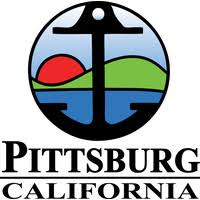
City of Pittsburg-City Hall
Categories
Government
About
History of Our City
Pittsburg has been a city in progress for nearly a century and a half. Located at the point where the Sacramento and San Joaquin rivers meet, Pittsburg is a city of both progress and promise. The earliest recorded history of our town starts in the year 1839 when the Mexican government granted almost 10,000 acres to Jose Antone Mesa and Miguel Jose Garcia. Shortly thereafter the little town was named New York of the Pacific, possibly because the man who laid out the town, Colonel J.D. Stevenson, was a native of New York. This area soon became known as New York Landing and thrived on fishing and canning industries. Following the discovery of coal in the hills three miles south of town, the town was renamed Black Diamond in 1868.In 1906 Columbia Geneva Steel opened for business, and by popular vote on February 11, 1911, the name was changed to Pittsburg, after the eastern birthplace of the steel industry but without the "H" for simplified spelling.In 1942 Camp Stoneman was built. This was to have a terrific impact on the City and its growth. For thousands of GIs who went to fight in the Asiatic-Pacific operations during World War II, Camp Stoneman was the last contact with the United States. In 1954, the Camp was closed and the property was added to the City of Pittsburg for commercial and residential development.
From a struggling settlement to an industrial center, Pittsburg has grown into a pleasant community of landscaped parks, recreational facilities, shopping centers, affordable housing and planned business and commercial development.
Pittsburg is striding into the future, each day more prosperous than the one before. New homes, renovated older homes, new businesses, a historic district being revived are all signs of even better times to come. Additionally, Pittsburg's local government has expanded the parks system, improved the roads, increased commerce and employment, expanded the Marina and built a modern Civic Center to take it into the 21st century. All of this at no additional cost to the taxpayer. Working together, the progress will continue.
To explore the rich history of Pittsburg, you are encourged to visit :
Pittsburg Historical Society & Museum
515 Railroad Avenue
Pittsburg CA 94565
Phone: (925) 439-7501
Hours of Operation
Wednesdays, 1:00 pm - 4:00 pm
Saturdays, 10:00 am - 2:00
Â
Pittsburg has been a city in progress for nearly a century and a half. Located at the point where the Sacramento and San Joaquin rivers meet, Pittsburg is a city of both progress and promise. The earliest recorded history of our town starts in the year 1839 when the Mexican government granted almost 10,000 acres to Jose Antone Mesa and Miguel Jose Garcia. Shortly thereafter the little town was named New York of the Pacific, possibly because the man who laid out the town, Colonel J.D. Stevenson, was a native of New York. This area soon became known as New York Landing and thrived on fishing and canning industries. Following the discovery of coal in the hills three miles south of town, the town was renamed Black Diamond in 1868.
In 1906 Columbia Geneva Steel opened for business, and by popular vote on February 11, 1911, the name was changed to Pittsburg, after the eastern birthplace of the steel industry but without the "H" for simplified spelling.
In 1942 Camp Stoneman was built. This was to have a terrific impact on the City and its growth. For thousands of GIs who went to fight in the Asiatic-Pacific operations during World War II, Camp Stoneman was the last contact with the United States. In 1954, the Camp was closed and the property was added to the City of Pittsburg for commercial and residential development.
From a struggling settlement to an industrial center, Pittsburg has grown into a pleasant community of landscaped parks, recreational facilities, shopping centers, affordable housing and planned business and commercial development.
Pittsburg is striding into the future, each day more prosperous than the one before. New homes, renovated older homes, new businesses, a historic district being revived are all signs of even better times to come. Additionally, Pittsburg's local government has expanded the parks system, improved the roads, increased commerce and employment, expanded the Marina and built a modern Civic Center to take it into the 21st century. All of this at no additional cost to the taxpayer. Working together, the progress will continue.
To explore the rich history of Pittsburg, you are encouraged to visit :
Pittsburg Historical Society & Museum
515 Railroad Avenue
Pittsburg CA 94565
Phone: (925) 439-7501
Hours of Operation
Wednesdays, 1:00 pm - 4:00 pm
Saturdays, 10:00 am - 2:00